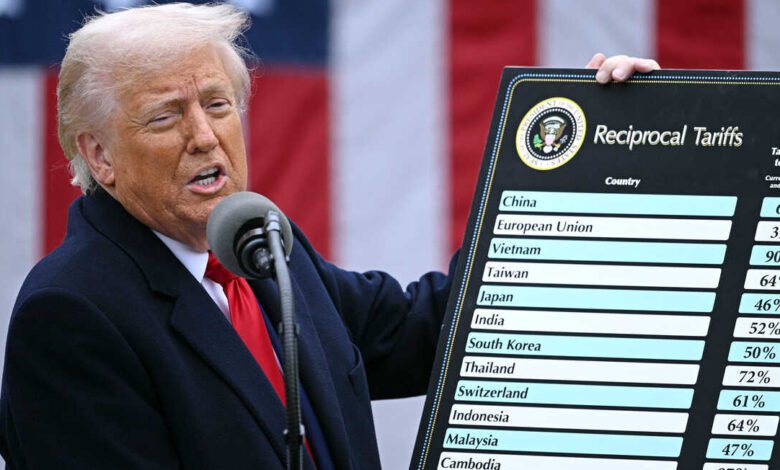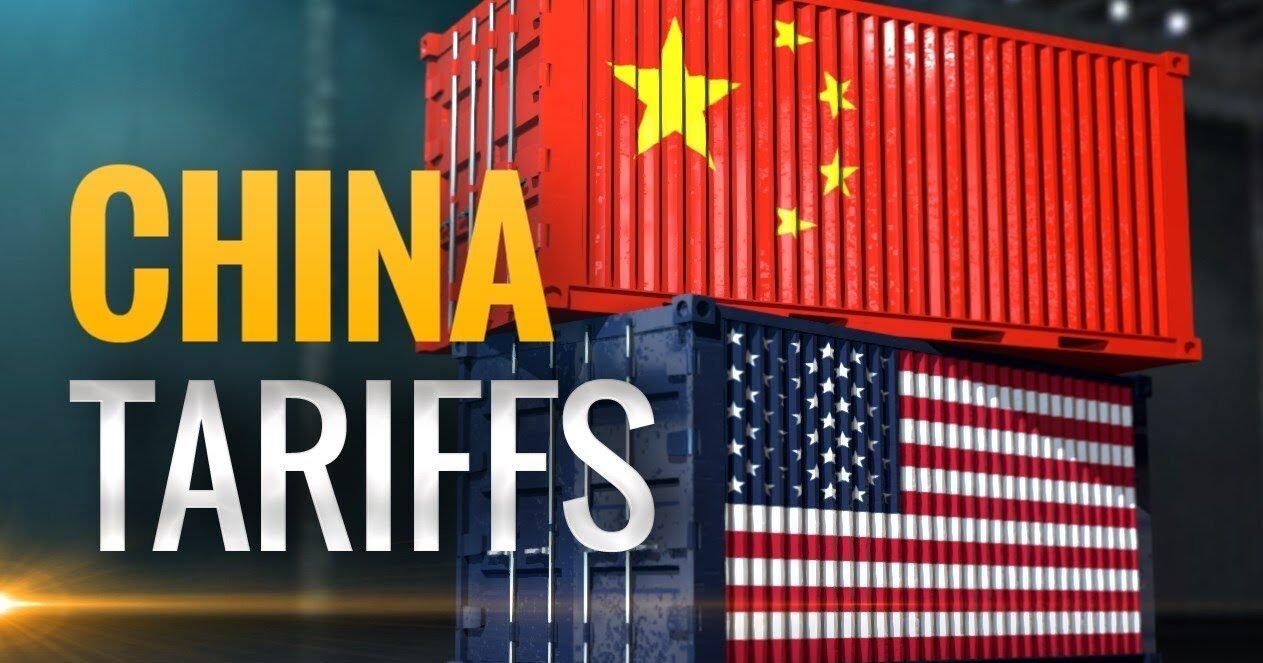
Rising trade tensions between the United States and China caused a significant stock sell-off and demand for safer investments like government bonds to soar, therefore marking a chaotic day for world financial markets on April 4, 2025.
Declining by 2,200 points, or around 5.5%, the Dow Jones Industrial Average (DJIA) fell noticeably from the market collapse brought on by the epidemic-induced loss in 2020. This rapid drop caused a trillion-dollar loss in market value and raised serious questions about the likelihood of a world economic collapse.
U.S.-China Tariff Impact
The first reason the Market Struggles fell sharply was China’s reaction against a fresh round of tariffs imposed by the United States. Declared on April 3, the U.S. government said a 34% duty on Chinese imports will force Beijing to make trade concessions. China answered by disclosing its list of taxes on American goods, equivalent to the American rate of thirty-four percent. Considered as a direct challenge to President Trump’s economic policies, the tariffs—which go into effect on April 10—showcased how far the trade dispute between the two largest economies in the world was from resolved.

Fear among investors over this next tariff round led buyers to sell off stocks in favor of less risky assets. Given the prospect of a protracted trade war with rising tariffs and economic upheaval, investor confidence dropped sharply. The sell-off impacts many industries, with particularly notable losses in consumer products and technology as well as those pertaining to foreign trade. Industries linked to this trade event are suffering really significant losses.
Market Decline Fears
Riding a consistent tide of gain for much of the past year, the Dow Jones Industrial Average fell most dramatically in one day among over three years. The 2,200-point decline underlined the mounting market anxiety over the financial fallout from a trade war. Other main American indices suffered as well; the S&P 500 plummeted more than 6%, while the Nasdaq Composite dropped roughly 20% from its past highs into bear market territory.
Among the sectors most affected was technology, which has been the driving force behind the past ten-year rise in stock market value. Investors worried that further tariffs would upset their worldwide supply chains and restrict their access to important markets, Outlook, so companies including Apple, Amazon, and Alphabet saw notable share losses. Likewise, financial stocks—especially banks—saw significant losses as the chances for economic growth sank.
Bond Market Surge
As markets dropped, investors sought bonds for protection, sharply reducing U.S. government debt rates. The 10-year U.S. Treasury note, a benchmark for world interest rates, witnessed a yield drop from 4.06% the day before to less than 4%. This yield drop implies more demand for government bonds as investors flee market volatility.
The bond spike was more obvious following China’s punitive steps since investors sought the relative stability of U.S. Treasury bonds. The U.S. government backs bonds; hence, historically, they are considered a safer investment in times of economic crisis. The flight to bonds also helped to flatten the U.S. yield curve, a phenomenon causing concerns about potential recession risk.
Fed Warns Economic Risks
The Fed, which has been closely monitoring the effects of trade tensions on the US economy, commented on the trade war’s potential effects. Federal Reserve Chairman Jerome Powell warned that a prolonged battle might hinder economic growth and raise prices. Even though the U.S. economy added 228,000 jobs last month, Powell cautioned that future tariff hikes could disrupt economic growth.
Many commentators believe the Fed may have to lower interest rates in the coming months to boost the economy. As the trade war continues and inflation rises, the central bank must balance development and price increases. Despite inflation concerns, the Fed may decrease rates to offset the economic downturn.
Global Market Effects
Beyond American borders, the U.S.-China trade spat influenced world markets, which also suffered notable drops. European stock markets suffered. The Stoxx 600 index dropped more than 10% from recent highs, while the London FTSE 100 fell 5%. Investor worries about the trade war hurting the U.S., China, and the larger world economy are reflected in declining worldwide stock prices.

The trade issues also rocked commodity markets; copper prices dropped by 6%, and oil prices fell below $65 per barrel. These declines were ascribed to worries about lower raw material demand as world economic growth slows.
Final thoughts
As of April 5, 2025, the financial markets still show great uncertainty. Investors are constantly observing changes in U.S.-China ties; any further increase in trade tensions would probably aggravate market volatility. The Federal Reserve’s future actions, especially regarding interest rates. It will be pretty important to determine the general state of the economy for the whole of next year. Investors should exercise caution now as the future may be marked by persistent volatility and heightened risks.







